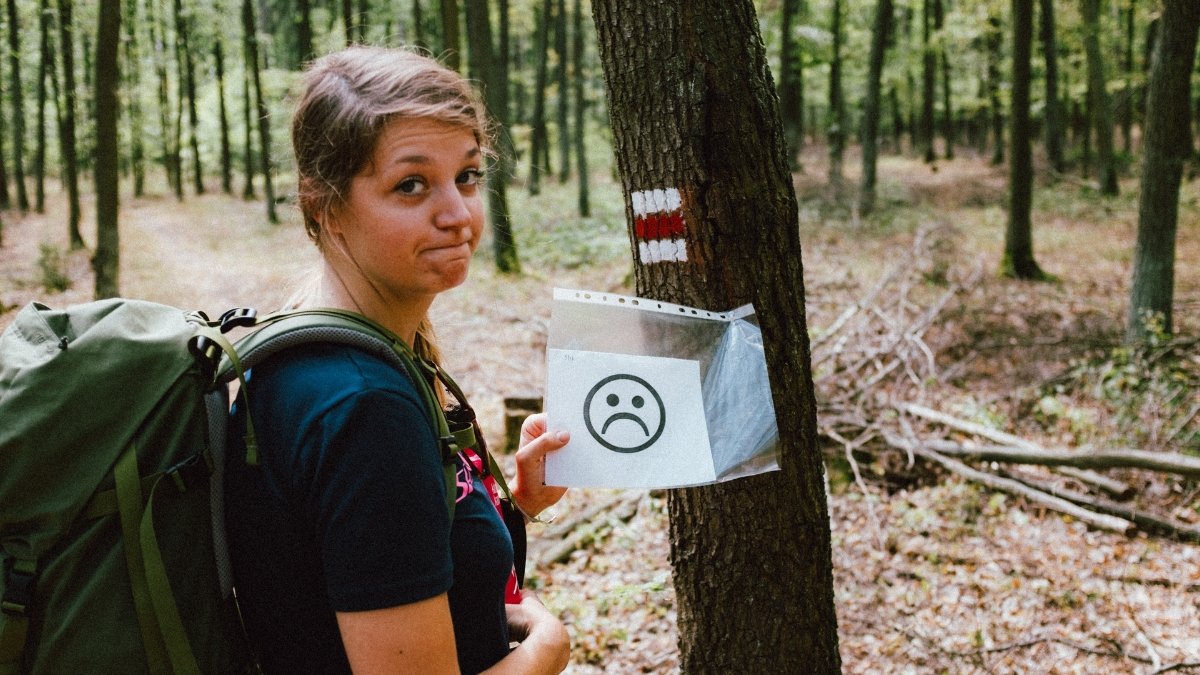The knock on your RV door at 6 AM wasn’t a friendly “good morning,” it was a park ranger with an eviction notice. Your family camping trip just ended before it started. And you’re not alone.
In 2025, Teton Interagency Fire personnel extinguished 101 unattended or abandoned campfires. Camping violations leading to evictions are at an all-time high across the country. Rangers are cracking down harder than ever on campers who break the rules.
You planned this camping trip for months. You took time off work, drove hours to get here, and paid good money for your campsite. The last thing you want is to pack up and leave because you missed an important rule.
That’s why we created this guide. You’ll learn 14 specific warning signs that indicate you’re about to get kicked out of your campsite.
14 Warning Signs You’re About to Get Kicked Out of Your Campsite
Noise Violations: The Reason for Campsite Evictions
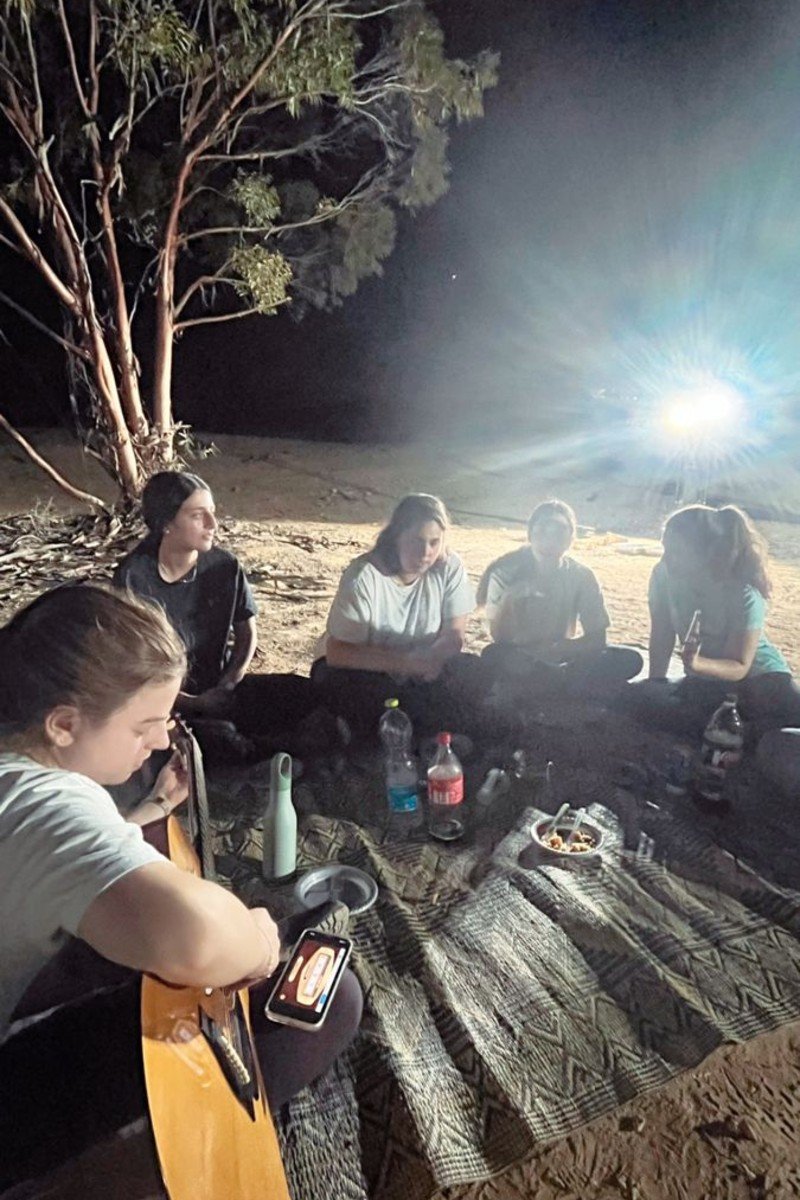
Nothing ruins a camping trip faster than getting kicked out of your campsite. And here’s the thing that might surprise you: most campers get evicted because they’re too loud.
You don’t mean to cause trouble. But that music is playing from your RV? Is your generator running at 8 PM? That late-night conversation around the fire? These can all get you a one-way ticket home.
i. Why Noise Rules Matter So Much
Campgrounds take quiet hours seriously. Most parks enforce these rules from 10 PM to 6 AM. Break them, and you’re out.
The Wisconsin DNR puts it simply: “Noise from a campsite cannot create a disturbance or interfere with other people’s enjoyment.” This rule applies everywhere, not just in Wisconsin.
ii. The Most Common Camping Noise Violations
Music that travels beyond your campsite. If your neighbors can hear your playlist, you’re too loud. This includes radios, speakers, and even loud singing.
Generators running outside permitted hours. Most campgrounds only allow generators from 9 AM to 11 AM and 4 PM to 7 PM daily. Run yours at 7 AM or 9 PM? You’ll likely get a warning, then eviction.
iii. The Bottom Line
Rangers don’t want to evict anyone. But they will if you disturb other campers. The solution is simple: follow quiet hours, respect generator rules, and keep your noise within your campsite boundaries.
Your fellow campers came to enjoy nature’s peace. Help them do that, and you’ll avoid becoming another noise violation statistic.
Pet Policy Violations That Get Families Evicted
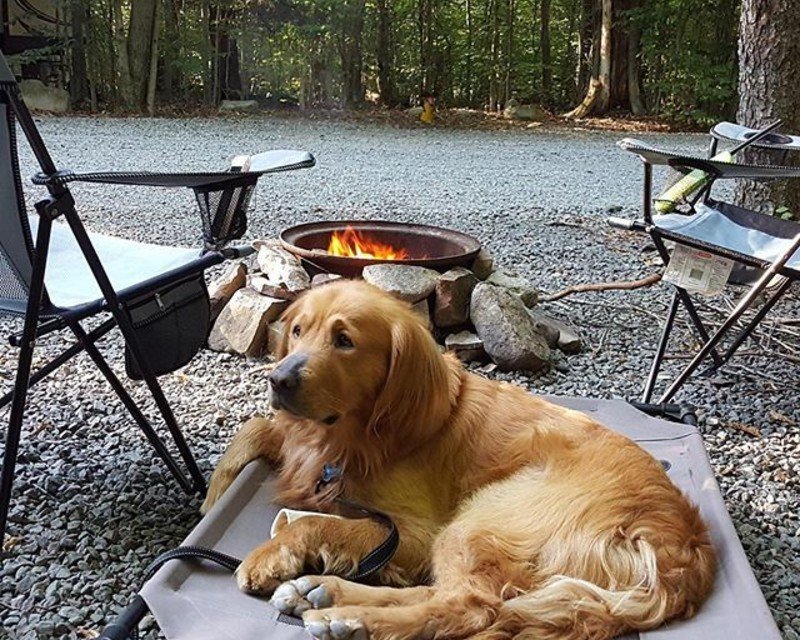
You packed the car, drove three hours to your favorite campground, and set up camp. Then a ranger walks over and tells you to pack up and leave. Why? Your dog violated the pet policy.
This happens to families every weekend. And here’s what makes it worse: most pet violations are easy to prevent if you know the rules.
i. Campgrounds Are Strict About Pets
Other campers pay good money for a peaceful experience. One barking dog or aggressive pet can ruin dozens of camping trips. That’s why rangers act fast when pets cause problems.
Most campgrounds also face insurance issues with certain dog breeds. It’s not personal, it’s business.
ii. The Pet Violations That Get You Kicked Out
Leaving your dog unattended. Even for a quick trip to the bathroom. Even if your dog is tied to your picnic table. Rangers consider this abandonment, and you’ll get evicted.
Letting your dog bark continuously. A few barks are normal. But if your dog won’t stop barking and disturbs other campers, you’ll be asked to leave immediately.
Not cleaning up pet waste right away. This means the second your dog goes, you clean it up. Wait until later, and you risk eviction.
iii. Breed Restrictions You Need to Know
Many campgrounds ban specific breeds. Common prohibited dogs include Pit Bulls, Dobermans, Mastiffs, and Rottweilers. Some parks also limit you to 2 pets per campsite.
Call ahead and ask about breed restrictions. Don’t assume your dog is welcome just because you made a reservation.
iv. How to Avoid Pet Evictions
Read the pet policy before you arrive. Keep your dog leashed and supervised at all times. Clean up waste immediately. And if your dog barks a lot at home, bring extra entertainment to keep them calm.
Your pet is family, but campground rules still apply. Follow them, and you’ll both enjoy your camping trip.
Campsite Occupancy Limits More People Than Permitted

You thought you were being smart. Book one campsite for your big family reunion and save money. Then a ranger shows up and tells half your group to leave, or everyone gets evicted. This mistake costs families their entire camping trip. And it happens more than you think.
i. Why Rangers Count Heads
Campgrounds limit occupancy for safety reasons. More people mean more cars, more tents, and more stress on facilities like bathrooms and water systems.
Plus, too many people in one site creates noise and crowding that bothers other campers.
ii. The Occupancy Violations That Get You Kicked Out
Having multiple families share one campsite. You can’t split the cost of one site between two families. Each family needs their reservation.
Exceeding the stated occupancy limit. Most family campsites allow 6 people. Some national forests bump this to 8 people. Go over that number, even with small children, and you’re breaking the rules.
More than 2 adults per campsite. This rule varies by location, but many campgrounds get strict about adult limits. Bring 4 adults and 2 kids? You might exceed their adult limit even if you’re under the total occupancy.
iii. Know Your Limits Before You Go
Check your campground’s specific occupancy rules when you book. Standard family campsites typically allow 6 people total. Group campsites cost more but accommodate larger parties legally.
Don’t count on rangers making exceptions. They won’t bend rules for birthdays, reunions, or special occasions.
iv. The Simple Fix
Book multiple campsites if you have a big group. Yes, it costs more upfront. But it’s cheaper than getting evicted and losing your entire camping fee.
Plan your group size before you book, not after you arrive.
Fire Violations: From Unattended Flames to Fire Bans
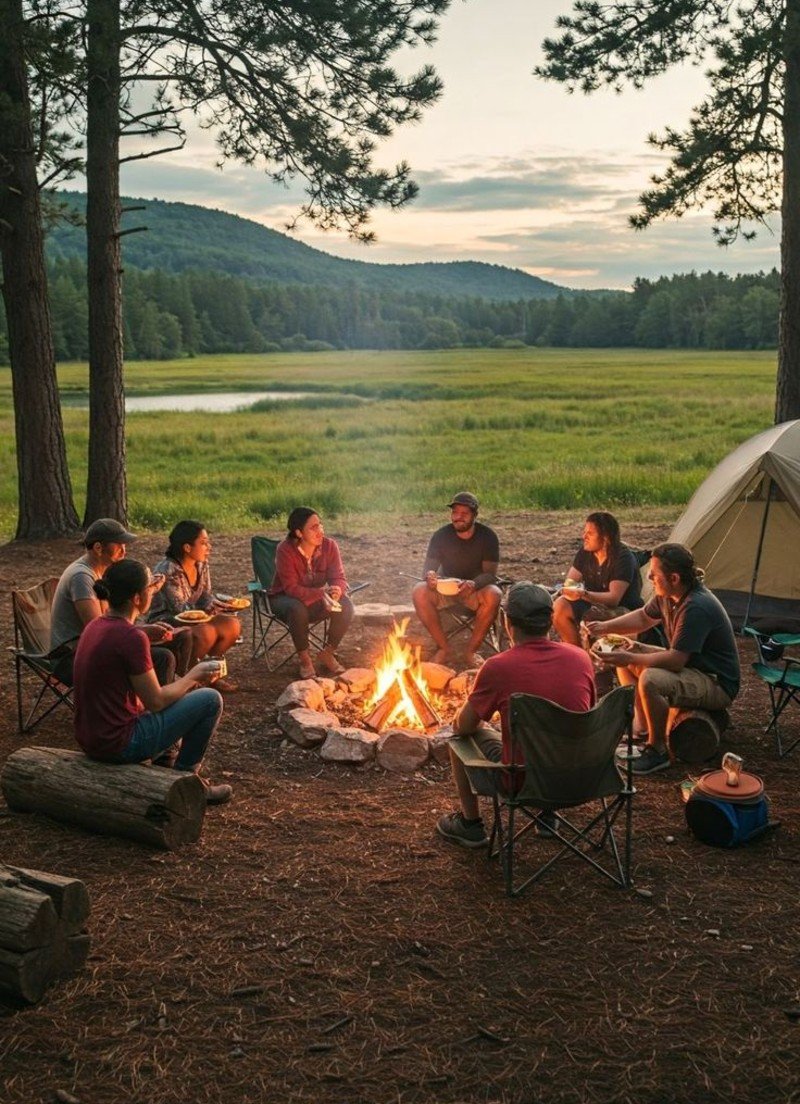
You step away from your campfire for just one minute to grab marshmallows from the car. When you come back, a ranger is putting out your fire and writing you a ticket.
That “quick trip” just cost you up to $5,000 in fines and possibly six months in jail. Fire violations are the most serious camping offense you can commit.
i. Rangers Take Fire Rules So Seriously
Wildfires destroy lives and property. One unattended campfire can burn thousands of acres and cost millions to fight. That’s why fire violations carry heavy penalties that can ruin your finances.
Rangers don’t give warnings for fire safety. They write tickets first and ask questions later.
ii. The Fire Violations That Cost You Big Money
Leaving your campfire unattended for any amount of time. Even for just a minute. Campfires must always be attended and put out completely with water when not attended. No exceptions.
Ignoring Stage 1 or Stage 2 fire restrictions. When fire danger is high, campgrounds ban certain activities. Stage 1 usually bans campfires but allows gas stoves. Stage 2 bans almost everything that creates flame or heat.
Using prohibited items during fire bans. Fire restrictions prohibit wood fires, charcoal, charcoal briquettes, pellet-fueled grills, candles, and tiki torches. Even birthday candles can get you fined.
iii. The Penalties That Will Shock You
Fire restriction violations can result in fines of up to $5,000 for individuals and $10,000 for organizations. You can also face imprisonment for up to six months.
These aren’t empty threats. Courts take wildfire prevention seriously, and judges regularly impose maximum penalties.
iv. How to Avoid Expensive Fire Violations
Check current fire restrictions before you leave home. Websites like InciWeb show real-time fire danger levels.
Never leave your fire unattended. Someone must watch it every second it’s burning. When you’re done, pour water on it until it’s completely cold to the touch.
Keep a bucket of water and a shovel next to your fire ring at all times. Fire safety isn’t just about following rules. It’s about protecting forests, wildlife, and human lives. Take it seriously, or face serious consequences.
Vehicle and Parking Violations
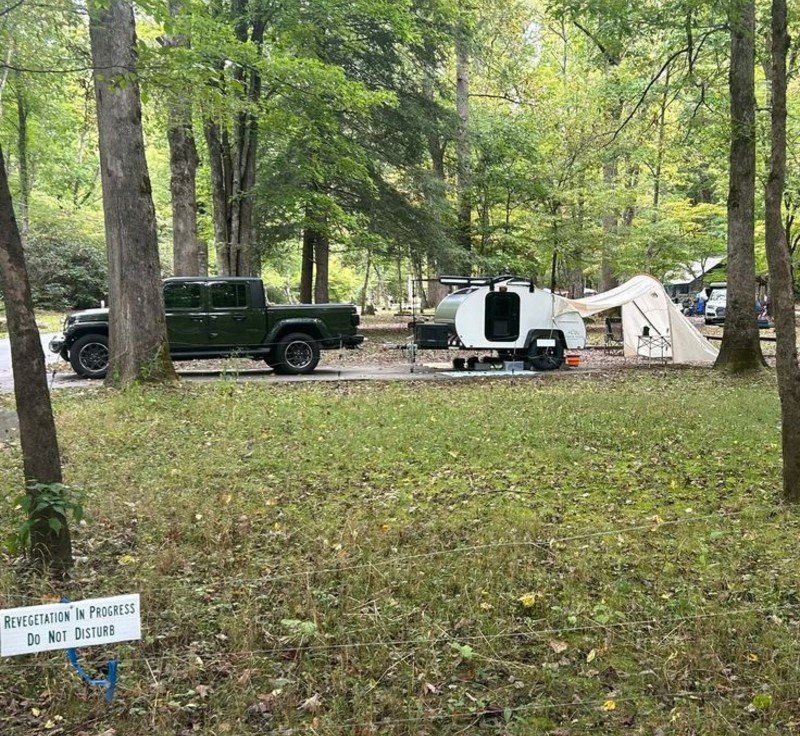
Your family just pulled into the perfect campsite with your RV, truck, and boat trailer. Everything fits, so you’re good to go, right? Wrong.
A ranger walks over and tells you to move two vehicles or pack up and leave. You just learned about the two-vehicle rule the hard way.
i. Campgrounds Limit Vehicle Numbers
Campsites have limited space and infrastructure. Too many vehicles create traffic jams, block emergency access, and damage grass and landscaping.
Most camping parking rules exist for safety. Fire trucks and ambulances need clear access to every campsite.
ii. The Parking Violations That Get You Evicted
Having more than two motor vehicles per campsite. Most campgrounds prohibit possessing, parking, or leaving more than two vehicles on a parking pad. This includes cars, trucks, RVs, motorcycles, and trailers.
Parking on grass or outside marked areas. All vehicles must stay on designated pads or gravel areas. Park on grass, dirt, or vegetation, and you’ll get a warning followed by eviction.
Parking additional vehicles anywhere in the campground. You can’t park your third car at the boat launch, visitor center, or empty campsite. Extra vehicles must leave the campground entirely.
iv. How to Avoid Parking Problems
Count your vehicles before you book. Cars, trucks, RVs, motorcycles, and trailers all count against your two-vehicle limit.
If you need more parking, book a second campsite or ask about overflow parking areas. Some campgrounds offer additional parking for a fee.
Check your campsite map when you arrive. Stay within the marked boundaries, and keep all vehicles on hard surfaces.
Alcohol and Drug Violations
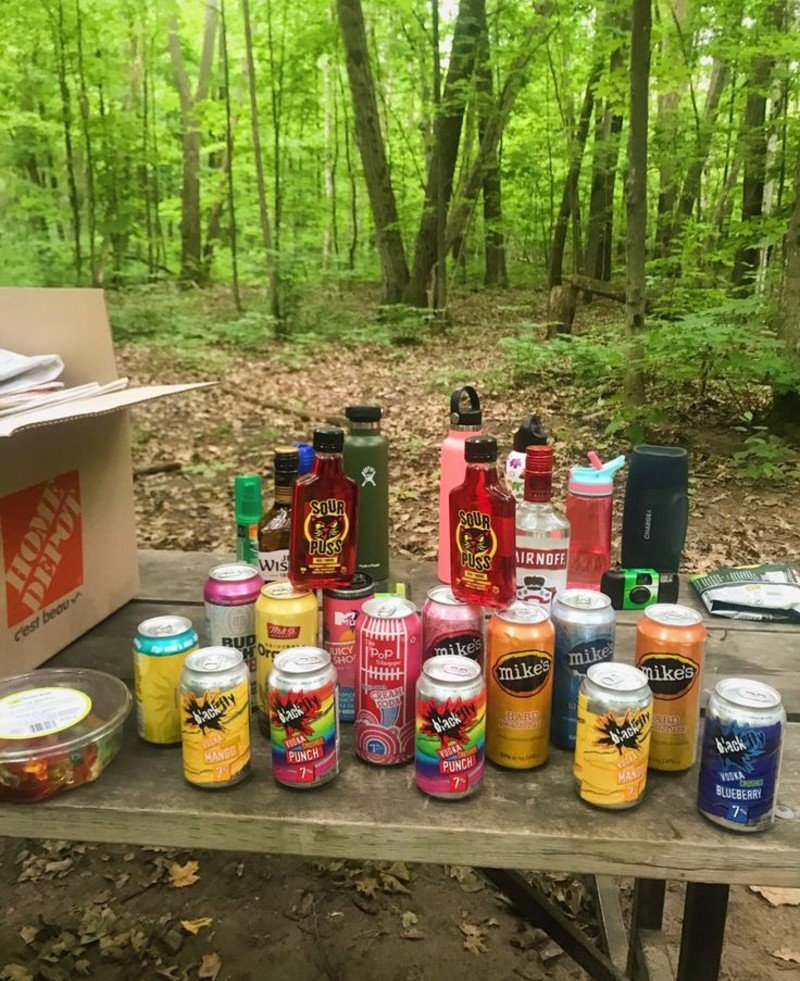
You’re having a great time around the campfire with a few beers. Then a ranger walks up and asks everyone to put their hands behind their backs. Someone in your group just turned a fun camping trip into a legal nightmare.
Alcohol and drug violations don’t just get you kicked out of the campground. They can result in criminal charges, fines, and permanent records.
i. Campgrounds Enforce These Rules Strictly
Rangers are law enforcement officers with arrest powers. When they see alcohol or drug violations, they must act. There’s no “looking the other way” or giving warnings for substance violations.
Public campgrounds serve families with children. Drunk or high campers create safety risks that rangers won’t tolerate.
ii. The Violations That Lead to Arrests
Public intoxication around your campsite. Being visibly drunk, loud, or disorderly can get you arrested even if you’re drinking legally. This includes stumbling, slurred speech, or acting aggressively.
Underage drinking violations. No person under 21 may possess alcoholic beverages on public lands. This applies even if parents give permission. Zero tolerance means zero exceptions.
Drug possession or use. Federal lands prohibit possessing any controlled substance in violation of Federal law. This includes marijuana, even in states where it’s legal. Federal law trumps state law on federal property.
iii. The Consequences You Face
Drug violations on federal land can result in federal criminal charges. That means federal court, not local traffic court.
Alcohol violations often include fines, court dates, and eviction from the campground. If you’re arrested, your camping trip ends immediately.
iv. How to Stay Out of Legal Trouble
Check alcohol rules before you drink. Some campgrounds ban alcohol entirely. Keep drinking moderately and privately. Don’t give rangers a reason to notice you.
Leave all illegal drugs at home. Don’t risk federal charges for any substance that’s illegal under federal law.
Remember, camping is supposed to be fun. Don’t let poor decisions about alcohol or drugs ruin your trip and your future.
Stay Limit Violations Overstaying Your Welcome
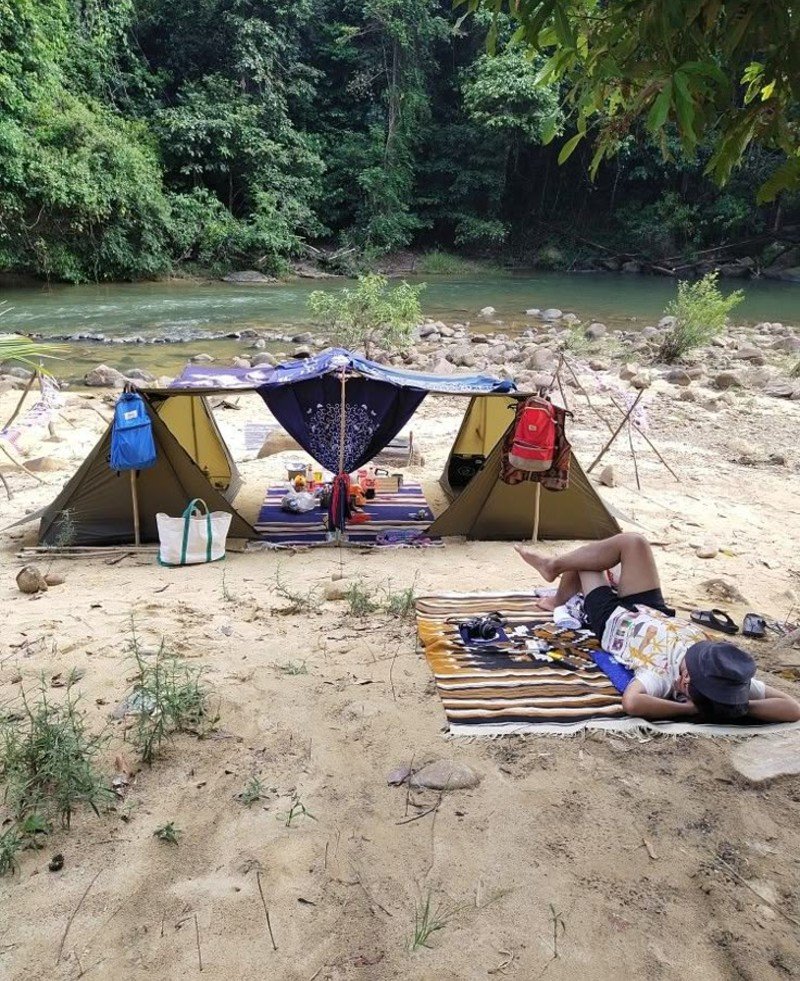
You found the best campsite and want to stay all month. So you set up camp, leave your gear, and head home for a few days. When you return, your tent and cooler are gone.
Rangers don’t just evict campers who overstay. They confiscate and dispose of abandoned equipment, too.
i. Why Campgrounds Enforce Stay Limits
Popular campgrounds have waiting lists of families wanting sites. When campers overstay or abandon equipment, they’re stealing opportunities from other people.
Stay limits also prevent campgrounds from becoming homeless camps or long-term housing situations.
ii. The Stay Violations That Cost You Everything
Exceeding the 14-day maximum stay. Most campgrounds limit stays to 14 days in any 21-30 day period. Stay longer, and rangers will evict you and ban you from returning.
Leaving camping equipment unattended beyond time limits. Personal property cannot be left unattended for more than 72 hours. Leave your gear and disappear for a long weekend? Rangers will remove and dispose of it.
Trying to “hold” a campsite for future use. You can’t leave a tent or chair at a site to save it for next weekend. Equipment left unoccupied for more than 48 hours may be removed by rangers.
Playing musical campsites to avoid stay limits. Moving from site to site within the same campground doesn’t reset your 14-day clock. Rangers track your total time in the area.
iii. What Happens to Your Abandoned Gear
Rangers don’t store your abandoned equipment. They dispose of it immediately. That expensive tent, cooler, and camping chairs? Gone forever.
You won’t get compensation or a chance to retrieve your items. Abandonment rules are strictly enforced.
iv. How to Avoid Stay Limit Problems
Book your stay dates carefully and stick to them. If you need to leave temporarily, take all your gear with you.
Don’t try to game the system by moving between nearby campgrounds. Rangers communicate and track repeat violators.
Plan shorter stays and book new reservations if you want to return. Fourteen days gives you plenty of time to enjoy any campground without wearing out your welcome.
Generator Time Violations
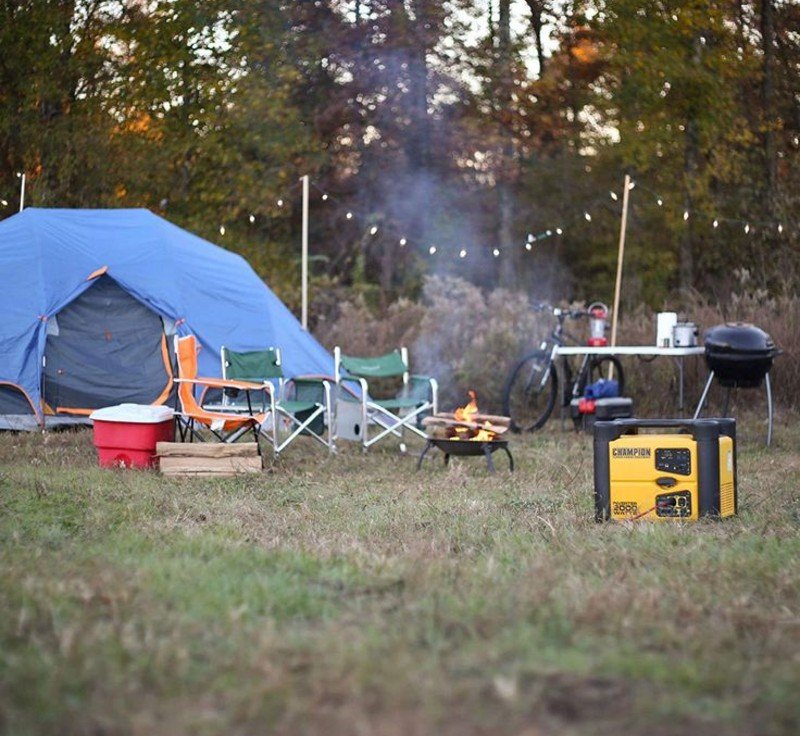
Your generator is humming along at 8 PM, charging your phone and keeping your RV cool. Then a ranger knocks on your door with an eviction notice. You just broke generator time rules.
Generator violations are easy to commit and hard to fight. Most campers don’t realize how strict these time limits really are.
i. Why Generator Hours Are So Limited
Generators destroy the peace that people come to camping for. Even quiet models create constant background noise that carries across the entire campground.
Rangers limit generator use to protect everyone’s outdoor experience. Break these rules, and you’re ruining dozens of other camping trips.
ii. The Generator Violations That Get You Kicked Out
Running generators during quiet hours. Most campgrounds ban generators from 7 PM to 7 AM. Run yours at 8 PM or 6 AM, and you’ll get evicted.
Exceeding daily hour limits. Generators are typically limited to 5 hours per day, usually 9 AM-11 AM and 4 PM-7 PM. Some parks like Yosemite are stricter, allowing generators only 7 AM-9 AM, noon-2 PM, and 5 PM-7 PM.
Using loud, non-compliant generators. Your generator must stay under 60 decibels at 50 feet. Older generators often exceed this limit and will get you evicted even during permitted hours.
iii. Medical Equipment Doesn’t Get Special Treatment
Need a generator for medical equipment? You still must follow time restrictions. Campgrounds require you to bring alternative power sources like battery packs or inverters, for medical needs.
iv. How to Avoid Generator Problems
Check your campground’s specific generator hours before you arrive. Set a timer when you start your generator to avoid going over time limits.
Consider investing in solar panels or battery systems instead. They’re quieter, work anytime, and won’t get you kicked out of camp.
Wildlife Feeding: A Federal Offense

You see a cute chipmunk begging for crackers at your picnic table. You toss him a few crumbs. A ranger sees you and writes a ticket for $5,000.
That “harmless” act of kindness just became a federal crime. Wildlife feeding violations carry some of the harshest penalties in all of camping.
i. Feeding Wildlife Is Such a Serious Crime
Fed animals become dangerous animals. They lose their fear of humans and start attacking campers for food. When that happens, rangers have to kill the animal.
There’s a saying in wildlife management: “A fed bear is a dead bear.” The same applies to deer, elk, raccoons, and even birds in some areas.
ii. The Wildlife Violations That Cost You Big
Feeding any wild animal directly. This includes throwing food to squirrels, chipmunks, birds, or any other creature. Feeding wildlife can result in fines of up to $5,000 or imprisonment for up to six months.
Leaving food out that attracts wildlife. Even if you don’t directly feed animals, leaving food where they can get it counts as feeding. This includes crumbs on your picnic table, garbage bags outside containers, and food left in unlocked cars.
Recent enforcement examples. At the Great Smoky Mountains, a visitor was spotted feeding a mother bear and her two cubs. That person faced federal charges and a permanent ban from all national parks.
iii. Even “Innocent” Feeding Gets You Arrested
You might think feeding birds is harmless. Many campgrounds prohibit all wildlife feeding, including birds. Rangers don’t make exceptions for “cute” animals or “just this once” situations.
iv. How to Avoid Wildlife Feeding Charges
Store all food in bear boxes, locked cars, or sealed containers. Clean up every crumb from your campsite, including pet food and cooking scraps.
Never approach or offer food to any wild animal. Keep a clean campsite and dispose of garbage properly. Take photos of wildlife from a distance. That’s the only interaction rangers allow.
Remember, wildlife feeding laws exist to protect both animals and humans. Break these rules, and you’ll face serious legal consequences that will follow you long after your camping trip ends.
Improper Waste Disposal and Sanitation
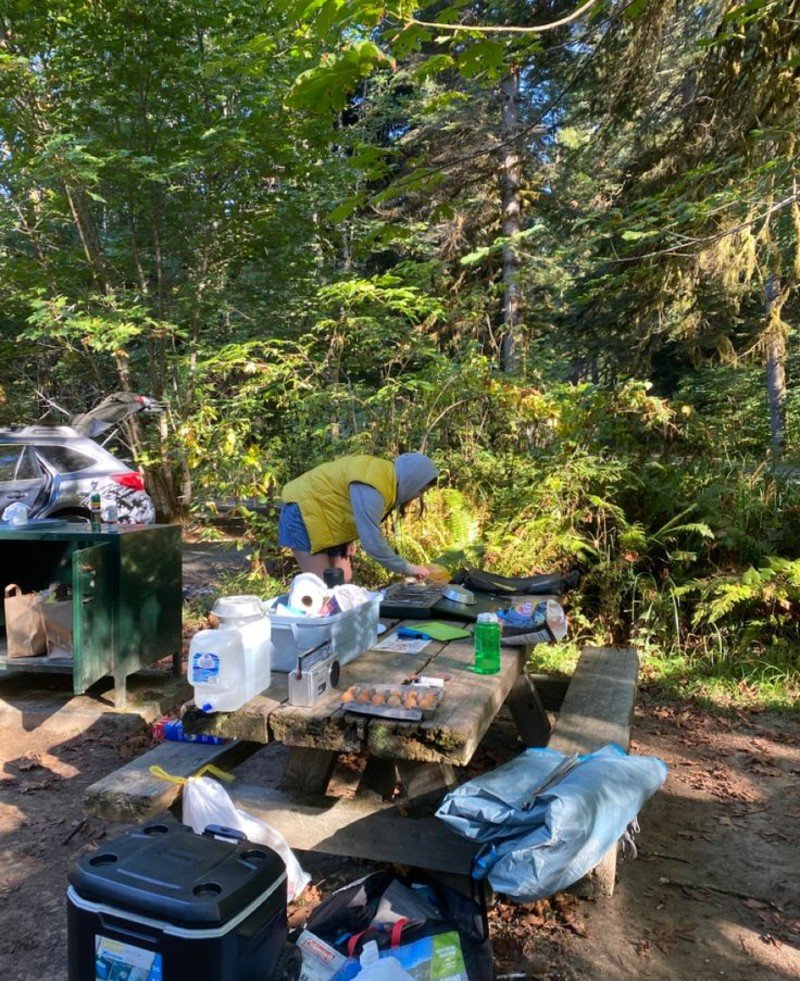
You finish washing dishes and dump the soapy water on the ground next to your RV. A ranger sees you and hands you an eviction notice. That gray water you just dumped violated federal environmental laws.
Waste disposal violations are becoming the fastest-growing reason for campsite evictions. Rangers are cracking down hard on campers who treat nature like their personal garbage dump.
i. Campgrounds Are Getting Stricter About Waste
The Forest Service reports a major increase in the amount of garbage that isn’t being properly disposed of. Dirty campsites damage ecosystems and create health hazards for wildlife and future campers.
Soap, food scraps, and gray water contaminate soil and groundwater. What seems harmless to you can poison plants and animals.
ii. The Waste Violations That Get You Kicked Out
Dumping gray water on the ground. This includes dishwasher, shower water, and any liquid that’s been used. Gray water must go to designated drains or dump stations, never on the ground.
Not using designated trash receptacles. You can’t just stuff garbage in random bins or leave bags next to dumpsters. Use only the trash containers provided for your campsite.
Leaving campsites dirty. Rangers expect you to leave your site cleaner than you found it. Food scraps, cigarette butts, and any litter will get you evicted and fined.
Improper human waste disposal. In areas without bathrooms, you must follow specific rules for waste burial and toilet paper disposal.
iii. How to Avoid Waste Disposal Problems
Plan your camping to produce as little trash as possible. Bring reusable containers and minimize packaging before you leave home.
Carry gray water to dump stations in containers. Never pour it on the ground, even if it looks harmless.
Clean campsites protect the environment and ensure future campers can enjoy the same beautiful spaces you did.
Unauthorized Camping Areas
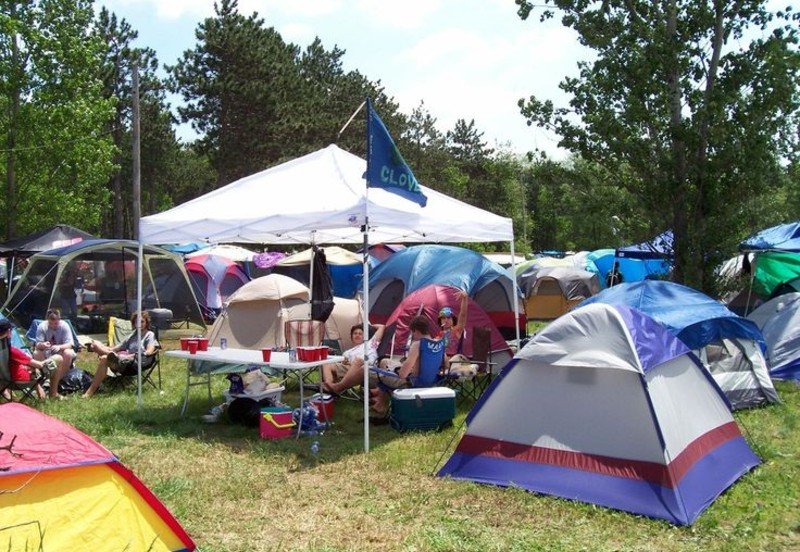
You arrive at the campground and all the sites are full. You spot a nice flat area just outside the campground boundary and set up there instead. A ranger finds you at 6 AM and hands you a hefty fine.
That “empty” spot wasn’t available for camping. You just learned about unauthorized camping laws the expensive way.
i. Why Rangers Patrol for Illegal Campers
Designated campsites exist for safety and environmental protection. They have proper drainage, fire safety clearances, and access for emergency vehicles.
Camping in unauthorized areas damages fragile ecosystems and creates safety hazards that put you and other campers at risk.
ii. The Unauthorized Camping Violations That Cost You
Setting up camp outside designated boundaries. Camping is only permitted in designated campsites with posted site numbers. Even a few feet outside the marked area counts as illegal camping.
Camping in day-use only areas. Picnic areas, boat launches, and hiking trailheads are for daytime use only. Set up a tent there, and you’ll get fined and evicted.
Unauthorized backcountry camping. Many wilderness areas require permits for overnight stays. Camp without proper permits, and you face federal violations.
Ignoring dispersed camping regulations. Some forests allow dispersed camping, but with specific rules about distance from roads and water sources. Break those rules, and you’re camping illegally.
iii. The Penalties You’ll Face
Illegal camping outside designated areas results in hefty fines starting at several hundred dollars. Rangers also evict you immediately, regardless of weather or time of day.
iv. How to Avoid Unauthorized Camping Charges
Always camp in numbered, designated sites with proper reservations. If campgrounds are full, find another location or book a different date.
Check with rangers about dispersed camping rules before setting up anywhere outside official campgrounds. When in doubt, don’t camp there.
Check-in and Reservation Violations

You drive four hours to your reserved campsite, but traffic made you two hours late. When you finally arrive, another family is setting up in your spot. The camp host tells you that you forfeited your reservation by missing check-in deadlines.
Your camping trip just ended before it started. Late check-in violations cost you your site and your money.
i. Check-in Deadlines Exist
Campgrounds operate on tight schedules with limited staff. When you don’t show up on time, they assume you’re not coming and give your site to someone else.
Popular campgrounds have waiting lists of families hoping for cancellations. Your late arrival could mean another family gets to camp.
ii. The Check-in Violations That Cost You Your Site
Missing the check-in deadline. Most campgrounds require you to check in by 3 PM on the second day of your reservation. Arrive later without calling ahead, and you forfeit your site and fees.
Camping without valid reservations. Rangers check reservations daily. If you can’t prove you belong at a site, you’ll be evicted immediately.
Arriving late without notification. Traffic delays and emergencies happen. But if you don’t call the campground to explain your delay, they’ll give away your site.
iii. How to Protect Your Reservation
Call the campground if you’re running late. Most will hold your site if you communicate with them.
Always check in at the registration office before going to your campsite. Get your camping permit and site assignment in writing.
Save your reservation confirmation on your phone. Rangers need to see proof that you belong there.
Property Damage Beyond Normal Wear
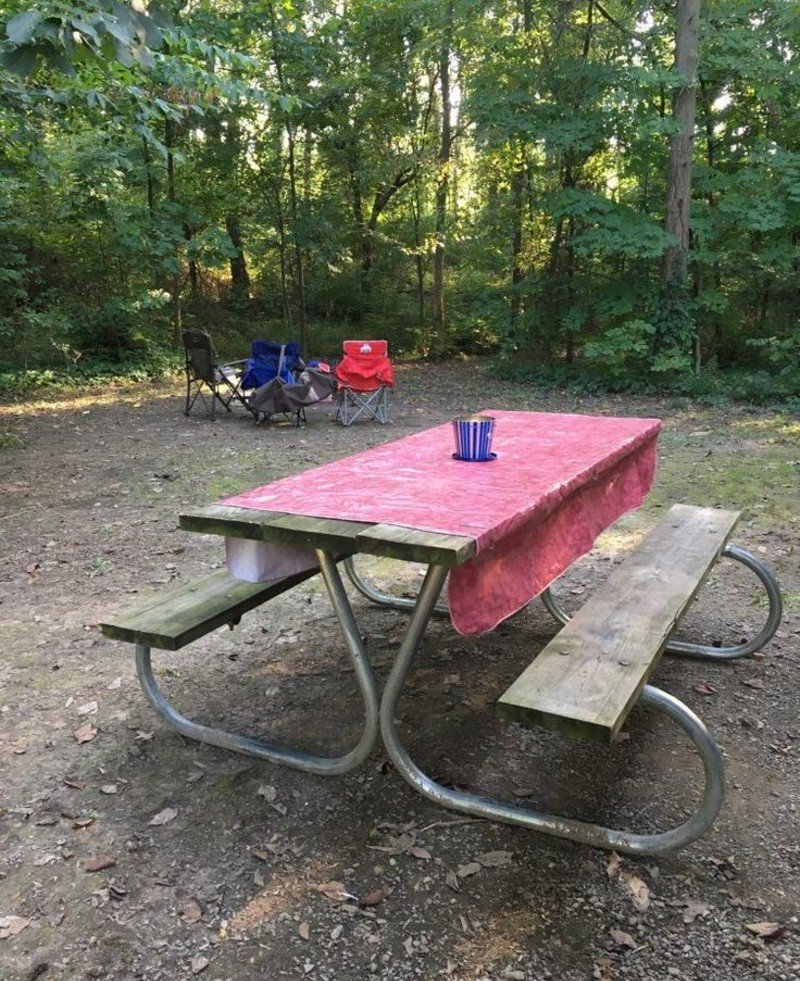
You’re setting up your tent and driving stakes deep into the ground to secure it. When you leave, a ranger hands you a bill for $500. Those tent stakes just damaged tree roots, and now you’re paying to replant the entire area.
Property damage violations can turn a cheap camping trip into an expensive nightmare. And here’s what makes it worse: you’re guilty until proven innocent when it comes to campsite damage.
i. Property Damage Rules Are So Strict
Campgrounds operate on thin budgets. When campers damage fire rings, picnic tables, or landscaping, the park loses money fixing what should have lasted for years.
Campers are responsible for any damage to campsites or other department property. This isn’t limited to obvious vandalism – it includes any damage beyond normal wear and tear.
ii. The Property Damage That Costs You Big Money
Damaging fire rings or picnic tables. Moving heavy picnic tables can crack concrete pads. Using fire rings incorrectly can warp or crack the metal. You’ll pay full replacement costs for any damage you cause.
Driving tent stakes into tree roots or protected areas. Tree roots extend far beyond the trunk. Drive stakes into roots, and you could kill expensive landscaping that costs hundreds to replace.
Not reporting pre-existing damage when you arrive. Always walk around your campsite and report any existing damage to the camp host immediately. If you don’t report it, rangers assume you caused it.
Vehicle damage to roads or campsites. Drive off designated roads or parking areas, and you’ll pay for restoration work.
iii. How to Avoid Damage Charges
Take photos of your campsite when you arrive. Document any existing damage before you unpack.
Use only designated areas for tents, vehicles, and equipment. Ask camp hosts where it’s safe to drive tent stakes if you’re unsure.
Treat campground property like it belongs to your best friend, because damage charges can easily cost more than your entire camping trip.
Failure to Follow Staff Instructions
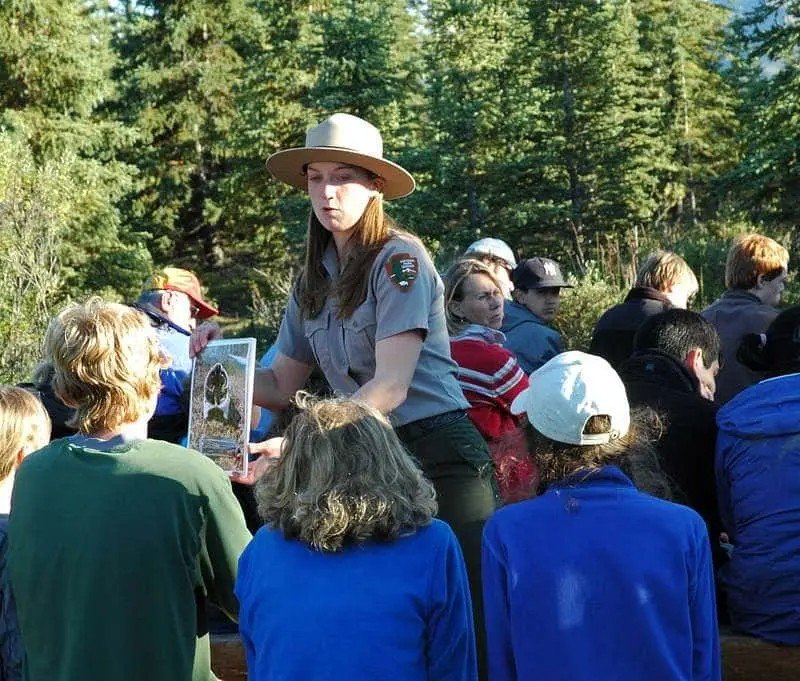
A ranger asks you to move your car because it’s blocking emergency access. You argue that your parking looks fine to you and refuse to move it. Twenty minutes later, the same ranger hands you an eviction notice.
That argument just ended your camping trip. Failing to comply with staff instructions is the fastest way to get kicked out of any campground.
i. Ranger Instructions Are Non-Negotiable
Rangers are law enforcement officers with legal authority over campgrounds. When they give you an instruction, it’s not a suggestion – it’s a lawful order.
Campground rules state that violation of any campground rule is grounds for eviction. But refusing to follow staff instructions violates federal law, not just campground policies.
ii. The Compliance Failures That Get You Evicted
Refusing to move to a different campsite when requested. Rangers sometimes need to relocate campers for safety or operational reasons. Refuse, and you’re out immediately.
Ignoring ranger warnings about violations. When a ranger tells you to fix a problem, you have one chance to comply. Ignore their warning, and they’ll evict you without a second chance.
Not complying with emergency instructions. During fires, storms, or other emergencies, rangers give evacuation or safety orders. These aren’t optional requests.
iii. How to Avoid Compliance Problems
Always follow the ranger’s instructions immediately and politely. Ask questions for clarification, but never argue or refuse.
Staff instructions supersede general rules. If a ranger tells you something different from what you read online, follow the ranger’s direction.
Save arguments for later. Comply first, then file complaints through proper channels if you think a ranger was wrong.
FAQs
Do rangers give warnings before kicking you out?
It depends on the violation. For safety issues like unattended fires, wildlife feeding, or drug violations, rangers evict you immediately without warning. For less serious problems like noise complaints or parking violations, you might get one warning.
What happens to your camping fees if you get evicted?
You lose all your money. Campgrounds don’t refund fees when you get kicked out for rule violations. This applies even if you get evicted on your first day. You paid for the privilege of following campground rules, and breaking those rules voids your contract.
Can you fight a campsite eviction or get back in?
No. Ranger decisions are final, and there’s no appeals process at the campground level. Once you’re evicted, you must leave immediately. Many campgrounds also ban evicted campers from returning for months or even permanently.

